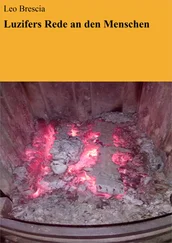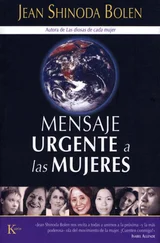Jean Rouaud - Of Illustrious Men
Здесь есть возможность читать онлайн «Jean Rouaud - Of Illustrious Men» весь текст электронной книги совершенно бесплатно (целиком полную версию без сокращений). В некоторых случаях можно слушать аудио, скачать через торрент в формате fb2 и присутствует краткое содержание. Год выпуска: 2011, Издательство: Arcade Publishing, Жанр: Современная проза, на английском языке. Описание произведения, (предисловие) а так же отзывы посетителей доступны на портале библиотеки ЛибКат.
- Название:Of Illustrious Men
- Автор:
- Издательство:Arcade Publishing
- Жанр:
- Год:2011
- ISBN:нет данных
- Рейтинг книги:4 / 5. Голосов: 1
-
Избранное:Добавить в избранное
- Отзывы:
-
Ваша оценка:
- 80
- 1
- 2
- 3
- 4
- 5
Of Illustrious Men: краткое содержание, описание и аннотация
Предлагаем к чтению аннотацию, описание, краткое содержание или предисловие (зависит от того, что написал сам автор книги «Of Illustrious Men»). Если вы не нашли необходимую информацию о книге — напишите в комментариях, мы постараемся отыскать её.
Of Illustrious Men — читать онлайн бесплатно полную книгу (весь текст) целиком
Ниже представлен текст книги, разбитый по страницам. Система сохранения места последней прочитанной страницы, позволяет с удобством читать онлайн бесплатно книгу «Of Illustrious Men», без необходимости каждый раз заново искать на чём Вы остановились. Поставьте закладку, и сможете в любой момент перейти на страницу, на которой закончили чтение.
Интервал:
Закладка:
The afternoon is coming to a gentle close, the hazy sky is diffusing a soothing light over the Breton countryside, like a healing balm over the devastated fields. The tall mounds of earth pushed back against the sides of the valley are already covered in foxgloves and bramble bushes and have been swarming with activity ever since the exiles from the hedges chose to make their nests there. A few cows amble up the meadow and stick their heads over the hedge to keep up with the latest news. He lowers the window, the smoke escapes. It has become so hot inside the car with the heat turned up to the maximum that the softness of the air makes him shiver. Gradually, the scents of grass and hawthorn come in and mingle with the foul smell of stale smoke permeating the car. He still hesitates. Just as he flicks his cigarette butt out the window to the other side of the road there is a sign, a miracle, whatever might have been said about it by those who saw it only as the end of a day’s work: the mechanical digger falls silent and suddenly surrenders the surroundings to their natural sounds — the birds singing as they take flight, the branch and leaves slightly trembling, the hedge quivering at the touch of the massive hindquarters of the cows; their plodding feet; the muffled echoes from a farm; and in the peace of the approaching evening, he thanks the heavens for having accompanied him throughout these hundred thousand kilometers without any other problems than the normal running repairs, without the slightest accident either to himself or to his family, and he gives thanks for being alive. He recites an Our Father and three Hail Marys.
This would have been as simple as ABC for our little aunt, but coming from him no one would ever have believed it. Not that he set himself up as a free thinker, but his remarks on religion were tinged with a discreet anticlerical-ism that upset our old Marie, who divided her time between the convent school where she taught and the church. She was not only a regular attendant at its services, she was also in some way responsible for its maintenance, and in particular for the collection boxes, and this, for we who had the privilege of accompanying her when she emptied them on Sunday evenings, seemed to be very like larceny with a key — the feverish discovery when the little wooden door was opened of the pile of coins inserted through the slot (small change and buttons), which we clawed out and put into a canvas bag, taking care not to let any of them fall on the floor, then checking in the corners in case we’d left some behind, and thus box by box adding to our booty, the bag becoming heavier and heavier in our hands, our lawful thieves’ footsteps resounding in the scary half-light of the church. But our aunt avoided arguments with her nephew. In the first place because she loved him, and furthermore because there can be no discussion about the Church, its dogmas, and its servants. She preferred to put a stop to any such talk by shrugging and, turning on her heel, trotting off, her head lowered, muttering to herself. It was useless for him to remind her that the nuns whom she championed so fiercely had made things so difficult for her during her career as a schoolmistress that, at her brother’s suggestion, she had even agreed to leave her room at the school and come and live in the little house he’d had built for her in the garden. She must have felt she was deserting them. She knew all this, of course she did. There was no need to rub salt in the wound. She still sometimes came back from the school on the verge of tears because the Mother Superior had made an unkind remark. But that was her business. It was not for her to sit in judgment on those women who had dedicated their lives to the service of Christ when she herself, after all, however pious she might be, had never taken the veil. Perhaps this was her way of paying for her evasion. On the other hand, she had no hesitation in pointing out to her recalcitrant nephew that Easter was approaching and that the confessionals were waiting for him because it was spring-cleaning time. Even though he only made up his mind at the last moment, he did yield to this annual checkup, and, it seems, with no apparent metaphysical torment. This never failed to cause us some alarm as to the salvation of his soul. It was his religious observance, which in our eyes was extremely vacillating, that had led us to classify him, if not among the unbelievers, at least among the very amateurish category of people who are believers out of habit or obligation. We were convinced that not going to Mass on Sundays, just like chewing the Host or blaspheming (even though we had no idea how to do that), was to put yourself in a state of mortal sin. And he was playing with fire, arriving well after the Introit, when the sermon was already well under way (it was always boring, according to him, and yet Father Bideau, the curé, from the height of his pulpit presented us with a terrifying vision of hell, and, his eyes bulging, leaning so far forward that his teeth sometimes came into collision with the microphone, hammered out in a voice that seemed to come from beyond the grave the words “Oh, the demon, oh, the wicked demon,” as if he could espy the demon in the modest décolletés of the women sitting below him but after such an admonition we lost all inclination to behave like little demons). Father, meanwhile, would be standing near the door, by the font, and sometimes, toward the end, leaning against a pillar (at this period the church was never empty and there was no question of walking up the aisle in search of an empty chair, especially if you happened to be wearing squeaky patent leather shoes — unless of course you wanted people to notice them), and he would take advantage of the confusion at the time of the communion and the comings and goings in the side aisles to slip out before everyone else, when the sound of the door creaking was drowned by the organ and five hundred people bawling at the top of their voices: “I am a Christian, therein lies my glory, my hope and my support.” All of which reduced his attendance at divine service to not much more than a quarter of an hour. We were afraid that that wasn’t enough.
To tell the truth, he wasn’t the only one who acted in this way. It was the hallmark of the men in general, many of whom, not wanting to remain standing even though they’d arrived late, found it convenient to borrow chairs from the cafes in the square and carry them into the back of the church. So a curious ballet took place in the little town every Sunday. Some of the men, prematurely tipsy, found it difficult to get through the revolving door at the side entrance without bumping their chairs against its wooden panels, thus disturbing the great solemn silence of the offertory and incurring the wrath of Bideau, who took his eyes off the ciborium in order to identify the culprit and rebuke him at the next opportunity. But these reprimands were also part of the ritual. They were proof that one was a member of the men’s clan. People even cast doubt on the virility of those who didn’t miss a moment of the Mass. They installed themselves in the front row from the first sound of the bell, an open missal in their hands and hymns in their mouths — but this presumption of impotence was certainly unjust to one of them, who had the face of a Mormon preacher, only one wife, and ten children.
The caste of the devout often included former seminarians who had been led astray by the call of sex. We remembered having seen some of them who had once worn the cassock but who had abandoned it just before they were to have been ordained. Having been recruited into the ecclesiastical network when very young (for the poorest among them this guaranteed an education with all its ensuing prestige), they had discovered late in the day that they hadn’t been told everything. Nevertheless they retained their original faith and talked their children into resuming the path they themselves had forsaken, but the children didn’t wait as long as their fathers before permanently choosing agnosticism.
Читать дальшеИнтервал:
Закладка:
Похожие книги на «Of Illustrious Men»
Представляем Вашему вниманию похожие книги на «Of Illustrious Men» списком для выбора. Мы отобрали схожую по названию и смыслу литературу в надежде предоставить читателям больше вариантов отыскать новые, интересные, ещё непрочитанные произведения.
Обсуждение, отзывы о книге «Of Illustrious Men» и просто собственные мнения читателей. Оставьте ваши комментарии, напишите, что Вы думаете о произведении, его смысле или главных героях. Укажите что конкретно понравилось, а что нет, и почему Вы так считаете.












